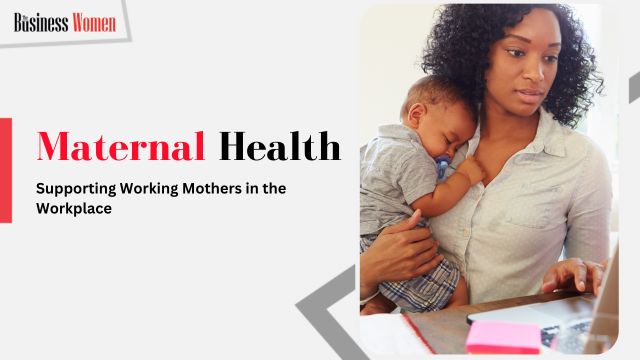Maternal Health: Supporting Working Mothers in the Workplace
The modern workplace is evolving, recognising the value and contributions of women in the business world. With increasing numbers of women pursuing careers, it becomes essential for organisations to address the unique challenges faced by working mothers. Maternal health and well-being are crucial factors in supporting the success of working mothers and fostering a supportive work environment. As an award-winning content writer, I delve into the importance of maternal health in the workplace and explore strategies to support and empower working mothers in India.
The Role of Maternal Health in the Workplace:
Maternal health significantly impacts the overall well-being and productivity of working mothers. A healthy and supportive work environment is instrumental in ensuring a smooth transition during the pre and postnatal phases. Prioritising maternal health is not only a moral obligation but also a strategic move for organisations to retain skilled and talented women in their workforce.
Flexible Work Arrangements:
Offering flexible work arrangements is one of the most effective ways to support working mothers. Flexible hours, remote work options, and job-sharing opportunities allow women to balance their professional responsibilities with maternal duties. Emphasising productivity rather than rigid work hours enhances job satisfaction and employee loyalty.
Maternity Leave Policies:
Robust maternity leave policies are essential for the well-being of working mothers. Organisations should provide adequate paid maternity leave, allowing women to recover from childbirth, bond with their newborns, and ease into the demands of motherhood without worrying about job security.
Lactation Support:
Supporting lactating mothers is crucial for their physical and emotional well-being. Creating lactation rooms or dedicated spaces for breastfeeding or expressing milk helps women maintain their breastfeeding journey while at work. Providing storage facilities for expressed milk ensures a seamless transition between work and home life.
Mental Health and Work-Life Balance:
Balancing work and motherhood can be challenging, leading to stress and mental health issues for working mothers. Employers can offer workshops, counselling services, and support groups to address mental health concerns and foster a positive work-life balance.
Childcare Assistance:
Affordable and reliable childcare assistance is invaluable to working mothers. Employers can collaborate with childcare facilities or offer subsidies to help ease the financial burden of childcare for working mothers. On-site or near-site childcare facilities can be a game-changer for women juggling work and parenting responsibilities.
Career Development and Advancement:
Promoting career development and opportunities for advancement is essential to retain talented women in the workforce. Ensuring equal opportunities and providing mentorship programs for working mothers can boost their confidence and motivation to excel in their careers.
Parental Support Groups:
Creating parental support groups within the workplace can be an excellent way for working mothers to connect with one another and share experiences. These groups foster a sense of community and understanding, making the workplace more inclusive and supportive.
Return-to-Work Programs:
Organisations can design return-to-work programs that help mothers smoothly reintegrate into the workforce after maternity leave. These programs may include refresher training, mentorship, and gradual work transitions to ease the adjustment process.
Conclusion
Supporting maternal health in the workplace is not only a matter of compassion but also a strategic decision that benefits both employees and organisations. By implementing flexible work arrangements, robust maternity leave policies, lactation support, and mental health initiatives, employers can create a supportive environment for working mothers to thrive personally and professionally. Providing childcare assistance, promoting career development, and establishing parental support groups further contribute to a workplace that empowers women in the business world. Embracing these strategies, organisations in India can champion maternal health, leading to a stronger, more diverse, and more successful workforce.
Keywords: maternal health, working mothers, workplace support, flexible work arrangements, maternity leave policies, lactation support, mental health, work-life balance, childcare assistance, career development, parental support groups, return-to-work programs, women in the business world India.

